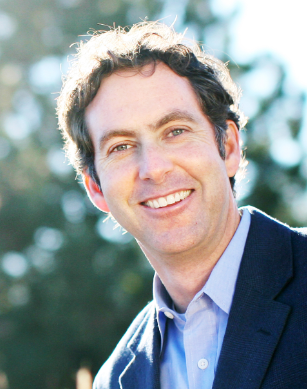 Partners in Food Solutions (PFS) is one of Root Capital’s allies within the food security space. Earlier this month, we spoke with CEO Jeff Dykstra about his organization and the challenges and opportunities associated with improving food security and nutrition around the world.
Partners in Food Solutions (PFS) is one of Root Capital’s allies within the food security space. Earlier this month, we spoke with CEO Jeff Dykstra about his organization and the challenges and opportunities associated with improving food security and nutrition around the world.
What approach does Partners in Food Solutions take to improving food security?
Partners in Food Solutions (PFS) is an organization that aggregates the experience and know-how of employee volunteers from four leading global food companies: General Mills, Cargill, Royal DSM and Bühler to share that with small and growing food companies in Africa. PFS is pioneering a volunteer movement that brings together corporate knowledge, expertise and resources to improve food security and nutrition and to enrich lives around the world. Right now, we work in Kenya, Tanzania, Ethiopia, Zambia and Malawi.
To date, we’ve worked with about 70 Africa based companies directly on a couple hundred different projects. We’ve worked with another 330 companies or so in those countries with more of a sector-wide training approach. When we see issues that are common across the industry, we’ll put together a training package that can deliver expertise to a group of companies at once.
The PFS seeks to create a “virtuous cycle” within the food value chain. Can you tell us about the PFS model and describe what that cycle looks like?
PFS has a unique model and is a great example of a public-private partnership. The four companies under the PFS umbrella work with USAID, aggregating our respective resources to deliver results to the Africa based food companies with whom we work. TechnoServe is our partner on the ground. They identify companies and then work with them to uncover some of their greatest challenges and opportunities. That gets translated into scopes of work, and we assemble volunteer teams, from the companies’ pool of 500 volunteers to go work on those projects. USAID funds TechnoServe in the field, while we bring the technical and business know-how with our volunteers. Our volunteers are able to do 95% of their work remotely eliminating the cost and time of travel, which is the natural barrier to scale.
When this began five years ago, it was originally General Mills looking for the best way to address food insecurity and nutrition in Africa, specifically thinking about the smallholder farmer. We realized that there was very much an underleveraged asset in the small and growing food processor, and began to see that if we could identify promising companies and help them build their business, a couple things would happen: 1) they would either build and/or sustain their demand for the crops of smallholder farmers and 2) they would be better able to supply local finished food products to both retail and food aid markets.
We believed that if we could help build those businesses, by transferring knowledge and technology, then we could create increased demand which could then increase food supplies in local markets.
What are some of the biggest barriers confronting PFS and its mission to develop strong, sustainable food supply chains throughout Africa?
There’s no shortage of challenges in trying to remotely transfer first-world knowledge to developing world countries, but we’ve been able to address many of the distance challenges through our partnership with TechnoServe. In each country in which we work, we have a local food technologist and a local business analyst. We’ve trained these individuals by bringing them to General Mills, Cargill, DSM and Bühler, so that once they’re back on the ground, they really understand what we can bring and are able to translate the challenges and opportunities of the local African companies into discreet projects for our volunteers. That’s helped us address this distance challenge and has allowed us to work at scale.
We have also found that companies not only need technical assistance and business know-how, but they also need access to capital. We’ve seen again and again the need for investment capital flowing into these companies, which was the original genesis of our relationship with Root. As Root was launching its Food Security & Nutrition portfolio, there was focus on similar kinds of companies and recognition that we were both bringing critical pieces of the puzzle.
In your opinion, what are the most effective strategies to improving food security in the countries in which PFS works?
Approaches that look at the entire value chain are key and there’s been a big, healthy shift in development in that respect. I think that historically, we’ve often only looked at one part. Investment in farmers is great, but if there’s not a market downstream for whatever it is they’re growing, we’re not addressing the full problem. I think more and more we’re seeing development take that whole value chain approach. TechnoServe is doing a great job with that in some of the export crop sectors like coffee.
How has PFS worked with Root Capital? How does PFS’s partnership with Root and other organizations help PFS advance its mission?
With Root, we’ve consistently shared pipeline, bringing companies that we’re working with to the Root team, and vice versa. We feel that when Root has vetted a company, that’s a really good sign for us that it fits our parameters in terms of the social impact and likelihood of success. There have been a couple companies where we’ve brought the technical assistance and Root has brought the financial capital. Nyirefami in Tanzania is probably the best example of that, and we believe there will be more examples like this in the months and years to come.

What do you think?